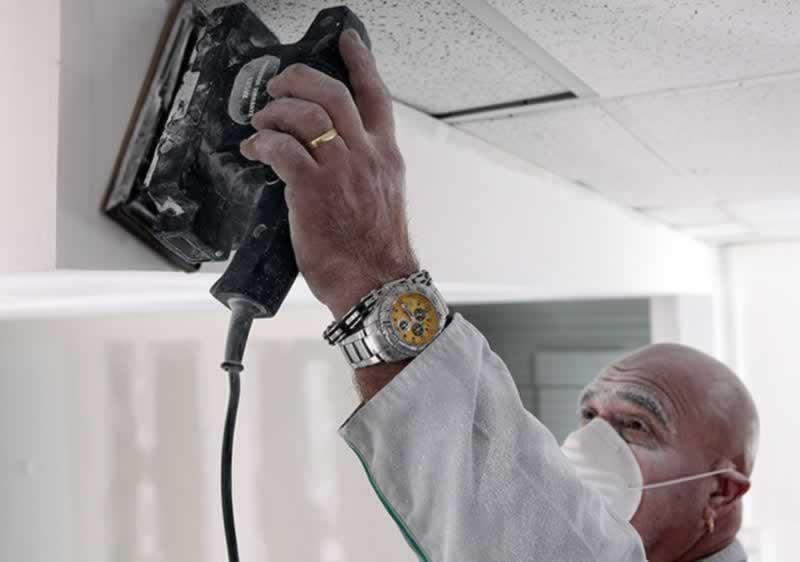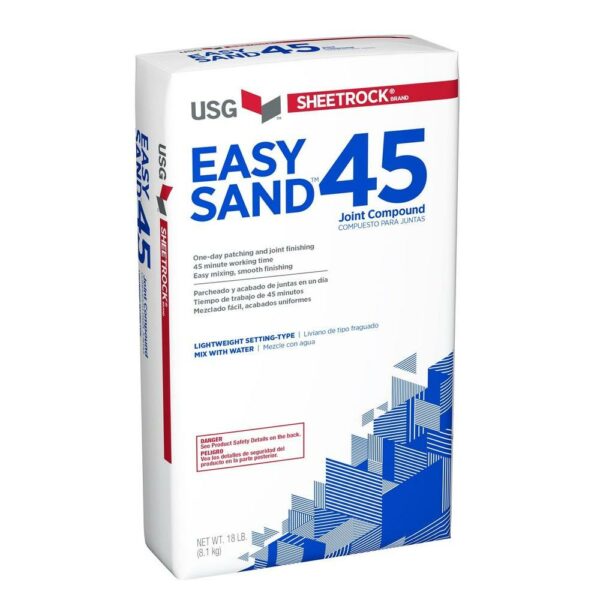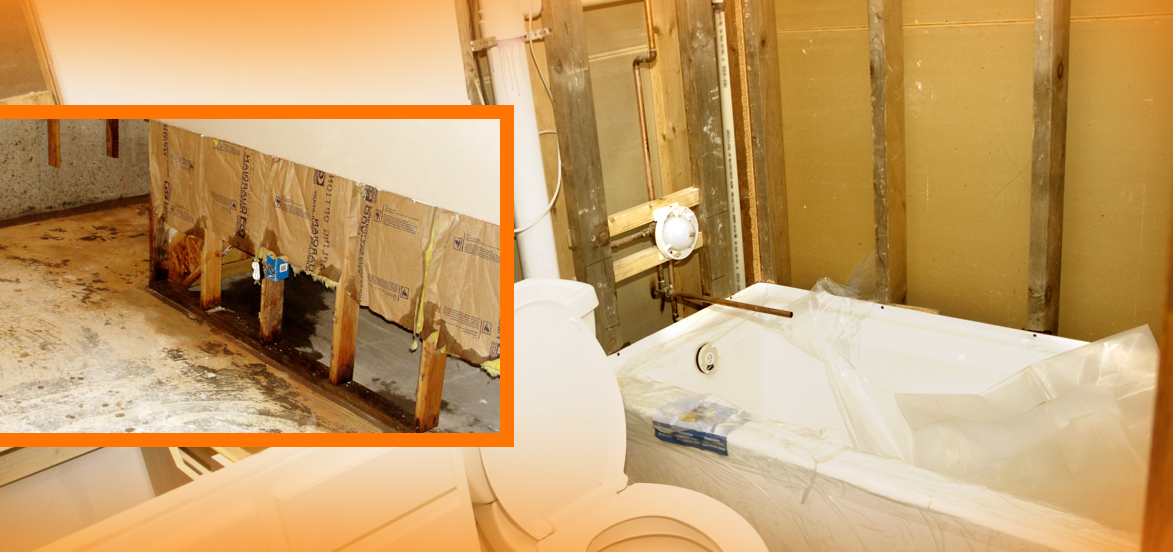
The best drywall-sander is necessary if you are working on a large job. This power tool can simplify the task and reduce your mental as well as physical workload. A sander can improve the look of your finished drywall. What sander should be chosen? There are several factors that you should consider when selecting a sander. These include your budget, the amount to sand, your ability and willingness to work from a ladder.
The best sanders are designed to meet your needs. For instance, a sander designed to adjust the height of the head may be a better choice for large areas. Another feature that you should look for is a dust collection system. While standard sanding discs can clog quickly, a sander with a vacuum can keep your workspace sanitary. This option is more expensive than a manual sander.
A sanding sponge can be used to sand small areas. These are soft, nonabrasive sponges that can blend the edges of taped surfaces. They can also used for wet-sanding as long they are taped correctly. High-density, polyurethane sponges are also great for sanding ridges.

One sanding pad may be sufficient for small drywall repairs. Detail sanders are also more useful for small corners and tight spaces. A random orbital motion sander can be used on larger flat surfaces. This can be manually altered to a triangular sander.
If you are sanding a large wall, you may want to use a sander with a circular head. This allows the machine to work in an extended circle, making the task much more manageable. A round sander also has a larger contact surface. Lastly, a random orbital sander doesn't require a lot of pressure.
Makita's drywall sander is the best for large projects. The Makita drywall sander has a powerful motor of 3.0-amps and an auxiliary vacuum. This makes sanding simple. It also runs quieter that other commercial belt-sanders. The 10-pack of coarsegrit paper comes with the sander.
The triangle head sander is an excellent choice for those who need to sand corners and narrow spaces. A triangle sander offers maximum control with a three-position grip, and an accessory hook/loop system for attachment that is tool-free.

Drywall sanders come in several different models and can have multiple speed settings. They are typically slower than vacuum-powered models, which can run at as high as 10,000 RPM. Depending on your needs, you might also want a sander with a telescopic pole. A pole sander can help you sand drywall more efficiently.
A dust collection system is also a great option to help you clean up after your job is done. A lot of sanders have a flexible hose that can be adjusted to different lengths. For sanding high panels, you may need a hose that is a few feet in length.
FAQ
How to quickly sell my home without having to pay realtor fee?
If you want to sell your house quickly, then you should start looking for buyers immediately. You should be open to accepting any price offered by the buyer. Waiting too long can lead to losing out on buyers.
How do you make a house look new?
These are the steps to follow when renovating your house without spending a lot of money.
-
Create a budget plan
-
Find out which materials you require
-
Pick a place for them
-
You will need to make a list of the things that you must buy.
-
Find out how much money your have
-
Plan your renovation project
-
Start working on your plan
-
Online research is a good idea.
-
Ask friends and family to help
-
Get creative
What should you consider when buying your next home?
Before purchasing a new home, make sure that you have enough money saved up to cover closing costs. If you don't have enough cash on hand, then you might want to think about refinancing your mortgage.
How do you choose a good contractor to work with?
Ask your family and friends for recommendations when choosing a contractor. Online reviews are also a good option. You should ensure that the contractor you select has experience in the field of construction you are interested. Get references from other people and review them.
How Much Does It Cost To Renovate A House?
The cost of renovations depends on what material is used, the size of project and how complicated the job is. Some materials like wood need additional tools, like saws or drills, while others like steel don't. The price of renovations will depend on whether you need your contractor to do everything or if the work is done by you.
The average cost for home improvements projects is $1,000 to $10,000. The average cost of home improvement projects would be between $5,000 and $25,000. If you hire professionals, the cost would be between $5,000 and $25,000. However, if the task is done entirely by yourself, the cost could rise to as high as $100,000.
The final cost for renovation depends on many factors. You should consider the material used, such as brick vs concrete. They include the type of material used (e.g., brick vs. concrete), the size and number of workers involved, as well as the length of each project. These are all important factors to consider when estimating renovation costs.
Statistics
- They'll usually lend up to 90% of your home's "as-completed" value, but no more than $424,100 in most locales or $636,150 in high-cost areas. (kiplinger.com)
- Most lenders will lend you up to 75% or 80% of the appraised value of your home, but some will go higher. (kiplinger.com)
- It is advisable, however, to have a contingency of 10–20 per cent to allow for the unexpected expenses that can arise when renovating older homes. (realhomes.com)
- Design-builders may ask for a down payment of up to 25% or 33% of the job cost, says the NARI. (kiplinger.com)
- Rather, allot 10% to 15% for a contingency fund to pay for unexpected construction issues. (kiplinger.com)
External Links
How To
Five Things You Need to Know Before You Begin Your Home Renovation
-
Do you really want to do this? It's likely that you will need assistance if you plan to tackle a large home improvement project, such as remodeling your kitchen or bathroom or building a new home. But if you don't feel confident enough to tackle such a large task alone, then you might want to reconsider doing so. It can take up your time and cost you money. You won't reap the benefits. Instead, why not hire someone who knows what they're doing to help out? You'll be able to save a lot of time and stress while still having a lovely space to call your own.
-
How much should I budget? This one may seem obvious, however spending too much on renovation projects could make matters worse. Because you will likely end up paying most of the costs back at the conclusion of the day. Keep your budget in mind. Otherwise, you could end up paying a fortune without getting anything in return.
-
Should I use DIY or hire professionals? - While there is no right or wrong answer, we recommend that you hire professional tradespeople if possible. After all, they'll be able to give you advice on how best to proceed with your project. They can install the plumbing correctly and make sure that it is done safely. DIY projects are often a trial-and-error process, so you'll need to learn a lot from your mistakes. Additionally, you will have to deal all manner of problems that can arise along the way.
-
How much can I afford it? - Do not underestimate how expensive a renovation project will cost. You might need to borrow money from family and friends to pay the bills. And if you're planning to sell your current property soon after completing the renovations, you'll definitely need to factor in the price of selling it into your calculations.
-
Where do I start? There's no right or incorrect place when it comes down to where to start. We recommend that you pick something that you are passionate about. You'll feel more motivated to work and less likely to procrastinate. Avoid areas that require constant maintenance. If your living area is constantly cluttered with dust and dirt, you should not attempt to redesign it.